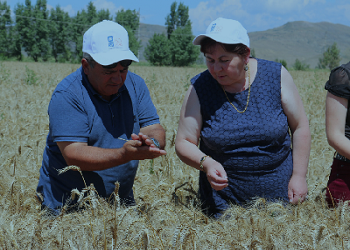The UNDP Farmer Knowledge Project was carried out in two phases. Data on Georgian rural households1 was collected by the polling agency Analysis and Consulting Team (ACT) between February and July 2015. 2 This data was analyzed with the purpose of producing policy recommendations by the ISET Policy Institute between November 2015 and July 2016.
The project pursued three overarching goals: (i) to understand which gaps in agricultural knowledge of Georgian farmers have the strongest impact on farmers’ productivity and income, and recommend relevant agricultural extension measures; (ii) to predict structural and social changes in Georgia’s agriculture under different scenarios; (iii) to suggest appropriate policy interventions to mitigate or encourage these changes.
The survey instrument was designed by UNDP, covering (i) household/farm and individual respondent’s characteristics, (ii) self-assessed needs for different types of skills and knowledge, and (iii) inputs and outputs of the farm production process. According to survey instructions, one interview was supposed to take around 45 minutes. To elicit training/capacity building needs, respondents were asked to assess the extent to which receiving more information related to particular knowledge areas was important for improving their farm operations. For each knowledge area, the answers were to be given on a scale ranging from 1 (“not important at all”) to 5 (“very important”). Thus, higher numbers indicated greater (self-assessed) demand for knowledge. Knowledge areas were identified as: “crop production”, “animal breeding”, “animal fattening”, “dairy production”, and “farm management”, and for each of these categories, between 8 and 10 specific activities were named. For each of these activities, the need for knowledge (“what to do”) was identified separately from the need for skills (“how to do it”).3











